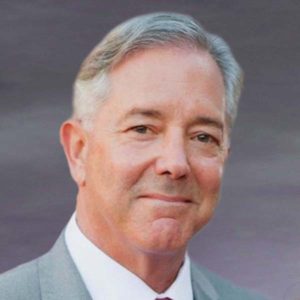
The common perception of Millennials conjures up latte sippers and job hoppers, but according to former CEO of Yum! Brands David Novak, Chief Executive‘s “2012 CEO of the Year” honoree and “guru of fun,” that is just not the case. His experience running a global company showed him Millennials aren’t aimless, they just keep moving until a leader sets them on fire. It is why he calls them the most misunderstood generation in history.
In a wide-ranging interview, I talked to Novak about the principles he developed to motivate people. They include recognition, leadership, passion, openness, and culture. None of the concepts are hard to implement; rather, they are being poorly executed by our current crop of business leaders, according to Novak.
These principles enabled Novak to turn a global organization into a band of passionate believers, and allowed him to take PepsiCo’s spin-off collection of Taco Bell, KFC, and Pizza Hut and transform Yum! Brands into a global powerhouse.
Novak believes if we want to engage Millennials, we need to start grooming leaders who understand how to motivate them. To make that happen, he just launched his leadership training startup, OGoLead.com.
JC: Your father was a government surveyor, and by the seventh grade you had lived in thirty-two trailer parks in twenty-three states. What role did that play in your career?
DN: In my biography, The Education of an Accidental CEO, I said living in a trailer park is not the negative experience many people think. In fact, it makes for a very close-knit family unit, mainly because you have no choice but to stick together. Kids today, with their computers and iPods and TVs, can disappear into their rooms and barely see their family. My TV watching was with my parents, my two sisters, and me all clumped together in our 8-by-40-foot trailer. Deciding what shows to watch was one of my first lessons in negotiation and compromise.
JC: Let’s talk about your passion for leadership. Why are today’s workers feeling so disengaged?
DN: Jeff, we have a problem that extends all the way from the boardroom to politics and it’s called toxic leadership. It is why the trust factor is crashing across all major institutions. The negative effect of Millennial turnover is costing the country $30.5 billion each year and is the highest of any of the previous generations. It comes from their frustration about the wrong type of culture and leadership.
“You can never underestimate the power of telling someone he or she is doing a good job.” – David Novak
JC: The federal government spends less than $5 billion annually on cancer research but we are spending over $30 billion on Millennial turnover. Where did business go wrong?
DN: Self-centeredness is part of the problem. I don’t think our business leaders realize it, but too many view their organization as something geared toward making their life better versus making other people’s lives better. This explains why disbelief in leaders hits the younger generation hardest because they want to be passionate about what they are doing. It’s why I say they are the most misunderstood generation in history.
JC: What are the real reasons Millennials change jobs so often?
DN: People think the only reason someone leaves a job is compensation, but that’s often just the excuse. More often, the main thing is people don’t get along with their boss. Sometimes it’s a 1950s authoritarian attitude but I found the problem comes down a lack of employee recognition. When people aren’t appreciated they will look for someplace else where they feel more valued.
JC: Why does recognition pay off so hugely?
DN: Recognition is a leader’s secret weapon. That’s what inspired me to write my last book, Oh, Great One! A Little Story About the Awesome Power of Recognition, because I think the best way to motivate an organization is to find those behaviors that you know are really driving performance. We call them our “how we work together principles” — you recognize the hell out of people, which is so important.
JC: Will sophisticated Millennials respond to “cheesy” recognition awards, no pun intended?
DN: The desire to be recognized for your talent and contribution is universal. And according to some human relations experts, it’s more important than money. To break through the clutter, I came up with an idea to crown people with cheese heads when I was running Pizza Hut. The headquarters folks told me it wouldn’t work in China because they were too hierarchical, or that it would upset people in India because culturally it wasn’t right. I ignored them, and it turned out to be nonsense — everybody loved it. From then on, I was hooked. It doesn’t matter whether you’re dealing with a highly ranked executive or someone who’s taking orders in a restaurant. You can never underestimate the power of telling someone he or she is doing a good job.
JC: You say that before a company can execute well, leadership must be both “heartwired” and “hardwired.”
DN: Heartwiring and hardwiring teaches people how to bring out the best leader in themselves and the best leader and results in others. “Heartwired” means leaders must demonstrate to people that they are listening and care, and that every person has value. But they also have to be “Hardwired” and put the procedures in place to drive excellence and eliminate barriers, and then make people accountable for performance. It’s a proven combination that I learned from decades of running a global organization.
JC: Accountable for performance sounds like tough love.
DN: I learned this from my mentor at Yum Brands, Andy Pearson. He taught me the subtle distinction between demanding performance and expecting it. If you expect performance, people will rise to meet your expectations, sometimes even surprising themselves in the process. But it has to be balanced with a genuine concern for the other person. There’s a big difference between being tough and being tough-minded.
JC: How important is corporate culture?
DN: Positive culture is the biggest driver of performance. If you look at any great leaders, the first thing they do is create the right environment that makes people want to innovate and satisfy customers. I learned at Pizza Hut that my enthusiasm would take things only so far. After that, I had to find a way to sustain that energy in my team and keep the momentum going. So we started to meet in groups to discuss these things and so much came out of that experience. Our tie-in to the NCAA basketball championships came out of those meetings as were our recognition awards.
JC: Why is passion so important to you?
DN: The example I would give is from the time I spent with Jack Welch, the former CEO of General Electric. He was talking about quality when he said, “If you really believe in quality, you can’t just tell people, you’ve got to go bonkers, shout it out.” I loved the idea that when something is important it means you have to break through the clutter, which is such a powerful concept. The reason is that most business is just white noise. Everything sort of blends into a kind of dull hum. So to make people understand, you’ve got to find a way to stand out, and that means go bonkers, be passionate.
JC: How did you learn the concept of openness?
DN: Because I came from a humble background, throughout my career as a CEO I discovered that every time I ignored stereotypes, I found hidden talent. When we launched our oven-roasted chicken at KFC, everyone at our corporate office thought the product was great, but the cooks didn’t — although until I asked, no one paid attention to what they said. They showed me how difficult it was to make the product with consistent results. That sent us back to the drawing board. Thanks to those cooks, we found a simpler process, which saved us a ton of time and money.
JC: What motivates you to help people?
DN: The biggest thing that drives me is helping people become stronger leaders. It takes the mindset of a coach — and the way you succeed as a coach is teach people how to win.

Chief Executive Group exists to improve the performance of U.S. CEOs, senior executives and public-company directors, helping you grow your companies, build your communities and strengthen society. Learn more at chiefexecutivegroup.com.
0

1:00 - 5:00 pm
Over 70% of Executives Surveyed Agree: Many Strategic Planning Efforts Lack Systematic Approach Tips for Enhancing Your Strategic Planning Process
Executives expressed frustration with their current strategic planning process. Issues include:
Steve Rutan and Denise Harrison have put together an afternoon workshop that will provide the tools you need to address these concerns. They have worked with hundreds of executives to develop a systematic approach that will enable your team to make better decisions during strategic planning. Steve and Denise will walk you through exercises for prioritizing your lists and steps that will reset and reinvigorate your process. This will be a hands-on workshop that will enable you to think about your business as you use the tools that are being presented. If you are ready for a Strategic Planning tune-up, select this workshop in your registration form. The additional fee of $695 will be added to your total.

2:00 - 5:00 pm
Female leaders face the same issues all leaders do, but they often face additional challenges too. In this peer session, we will facilitate a discussion of best practices and how to overcome common barriers to help women leaders be more effective within and outside their organizations.
Limited space available.

10:30 - 5:00 pm
General’s Retreat at Hermitage Golf Course
Sponsored by UBS
General’s Retreat, built in 1986 with architect Gary Roger Baird, has been voted the “Best Golf Course in Nashville” and is a “must play” when visiting the Nashville, Tennessee area. With the beautiful setting along the Cumberland River, golfers of all capabilities will thoroughly enjoy the golf, scenery and hospitality.
The golf outing fee includes transportation to and from the hotel, greens/cart fees, use of practice facilities, and boxed lunch. The bus will leave the hotel at 10:30 am for a noon shotgun start and return to the hotel after the cocktail reception following the completion of the round.